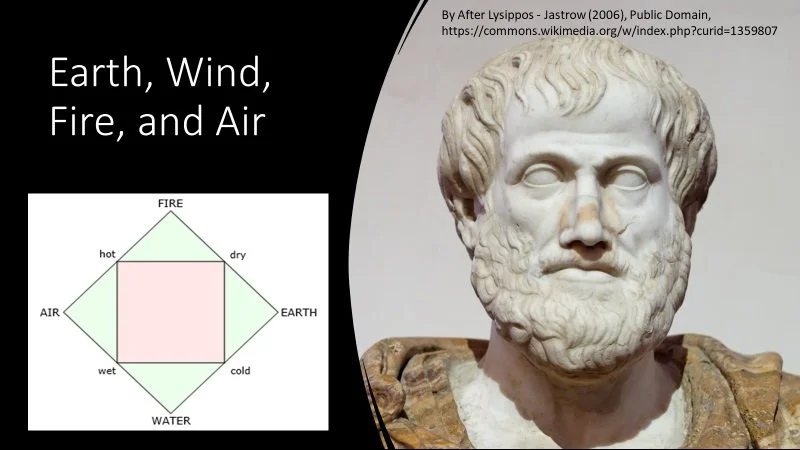Behold a captivating marble bust: Aristotle of ancient Greece, a scientific giant overshadowing even Democritus and Leucippus. His revolutionary idea declared that matter originated from four elements—earth, air, fire, and wind—each marked by unique qualities like warmth or coolness.
From the era of Classical Greece through the Enlightenment, Aristotle's elemental theory dominated. Lured by his brilliance, the world overlooked atomic theories from thinkers like Democritus. Yet, as science advanced, his model faced challenges. While profoundly influential, Aristotle led many on a millennia-long journey into Alchemy, a detour from true atomic understanding.
However, by studying Aristotle, gifted students recognize that even luminous minds have moments of misconception. Exploration and inquiry push us to question established ideas and propel science forward. Despite errors, Aristotle's monumental contributions to knowledge and thought solidify his esteemed position in history. Science evolves, and every theory forms a stepping stone to deeper understanding.
